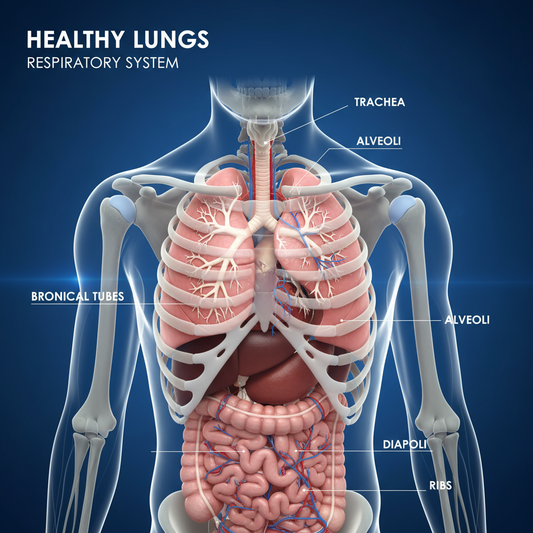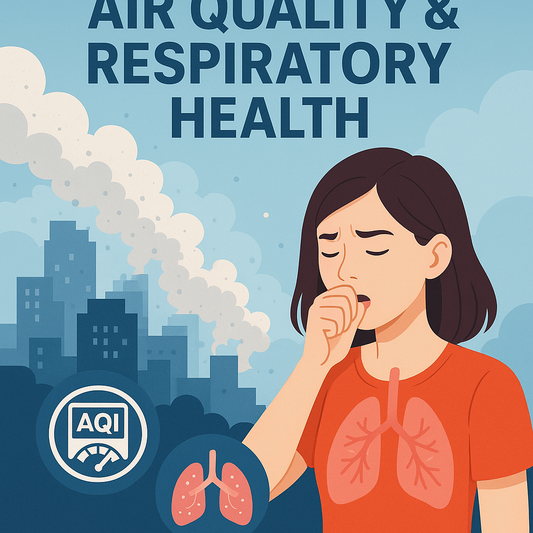Air Quality & Respiratory Health in Chicago: How to Recognize, Protect, and Relieve Symptoms

Breathe Easier in Chicago: Your Guide to Air Quality & Respiratory Health
Living in a vibrant city like Chicago has its perks, but urban life can also mean exposure to air pollution and environmental allergens that impact your respiratory health. At Naperville Pharmacy, we care about your well-being and are here to help you understand, protect, and improve your respiratory health—so you can breathe easier every day.
Why Air Quality Matters for Your Health
Air quality directly affects how well your lungs and respiratory system function. Poor air quality can trigger or worsen conditions like asthma, allergies, bronchitis, and even heart disease. According to the American Lung Association, millions of Americans live in areas with unhealthy air, and Chicago is no exception.
Key Facts:
- Chicago often experiences elevated ozone and particulate pollution, especially in summer.
- Children, seniors, and people with chronic conditions are most at risk.
How Do Air Quality Issues Affect Respiratory Health?
Common Causes and Risk Factors
- Outdoor Pollution: Vehicle emissions, industrial activity, and construction dust.
- Indoor Air Quality: Mold, pet dander, dust mites, and tobacco smoke.
- Seasonal Allergens: Pollen from trees, grass, and weeds.
- Weather Patterns: Hot, humid days can trap pollutants near the ground.
Chicago-Specific Concerns:
- High-traffic areas and industrial zones often have poorer air quality.
- Seasonal changes can bring spikes in pollen and mold.
Learn more: EPA - Air Quality in Chicago
How to Protect Your Respiratory Health in Chicago
1. Monitor Air Quality Daily
- Check the Air Quality Index (AQI) before outdoor activities.
- Limit time outside on high-pollution days, especially if you have asthma or allergies.
2. Improve Indoor Air Quality
- Use HEPA air purifiers at home.
- Keep windows closed during high pollen or pollution days.
- Regularly clean and vacuum to reduce dust and allergens.
3. Practice Healthy Habits
- Don’t smoke, and avoid secondhand smoke.
- Stay hydrated to keep airways moist.
- Wear a mask on days with poor air quality or high pollen counts.
4. Support Your Lungs with Nutrition
- Eat foods rich in antioxidants (like berries, leafy greens, and nuts).
- Stay hydrated to help your body filter out toxins.
How to Relieve Respiratory Symptoms
Recognize the Warning Signs
Common symptoms of poor air quality or respiratory issues include:
- Coughing or wheezing
- Shortness of breath
- Chest tightness
- Itchy or watery eyes
- Increased asthma or allergy attacks
Self-Care Strategies
- Use saline nasal sprays to clear airways.
- Take warm showers to help open up your lungs.
- Practice deep breathing exercises.
When to Seek Medical Help
- If you experience severe shortness of breath, chest pain, or persistent coughing, contact your healthcare provider immediately.
How Naperville Pharmacy Can Help
At Naperville Pharmacy, your respiratory health is our priority. Here’s how we support you:
- Expert Medication Counseling: Get advice on inhalers, allergy medications, and over-the-counter remedies.
- Wellness Products: Find air purifiers, saline sprays, and supplements to support lung health.
- Personalized Care: Our pharmacists can help you manage chronic conditions like asthma and allergies.
- Community Resources: We connect you with local clinics and specialists if you need further care.
Stop by or call us today to learn how we can help you breathe easier in Chicago!
Trusted Resources for Air Quality & Respiratory Health
- American Lung Association - Air Quality
- EPA - Air Quality Index
- Chicago Department of Public Health - Environmental Health
- Asthma and Allergy Foundation of America
Take Charge of Your Respiratory Health Today
Air quality is a crucial part of your overall health, especially in a busy city like Chicago. By staying informed, protecting your environment, and seeking support when needed, you can keep your lungs healthy and strong.
Naperville Pharmacy is here to help you every step of the way. For personalized advice, expert care, or to learn more about our respiratory health services, visit us or contact us today.



